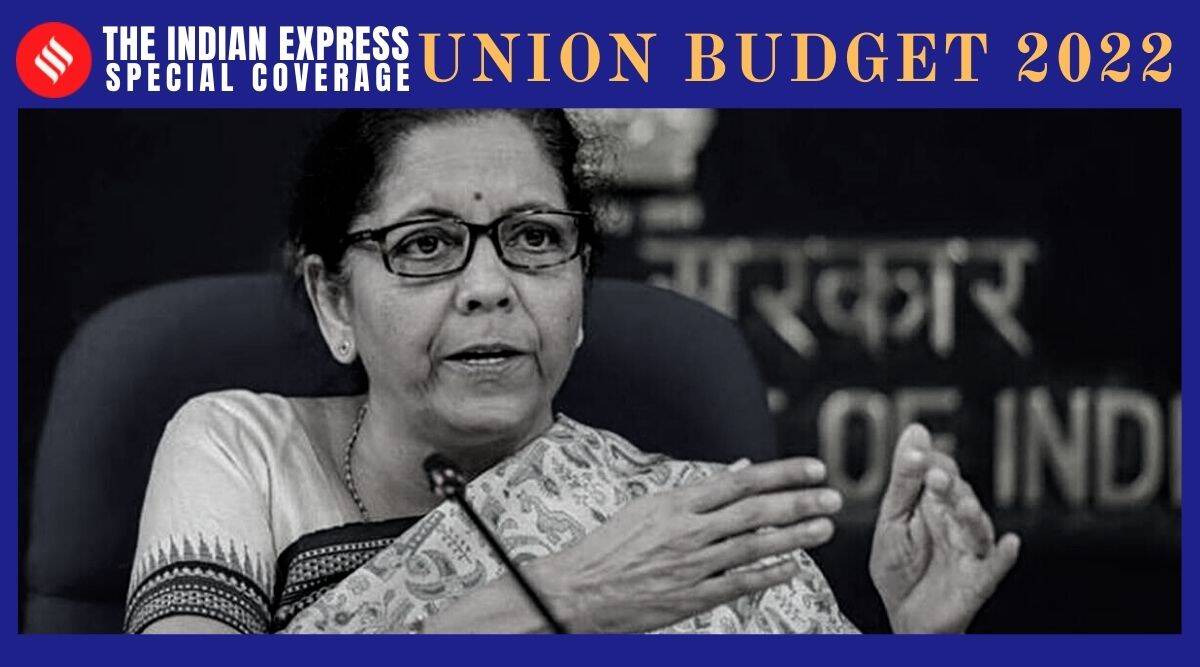 Finance Minister Nirmala Sitharaman
Finance Minister Nirmala Sitharaman Finance Minister Nirmala Sitharaman’s call for a “paradigm change” in urban planning, while announcing a high-level committee of reputed urban planners, urban economists and institutions to advise the government, was welcomed as an ‘opportunity of a lifetime’ by planners, managers and experts in Gujarat.
Bimal Patel, an Ahmedabad-based urban planner-architect and director at HCP Design and Project Management Private Ltd (HCPDPMPL), said India’s urban planning is still “informed by the planning philosophies of the socialist era”. He told The Indian Express on Tuesday, “It (Urban planning) is characterised by a command and control approach, a yearning to establish a license-permit raj and an anti-market outlook. On account of this, it not only does not work, not only causes more problems than it solves, but also does grievous harm to the poorest sections of the urban population. Indian urban planning urgently needs reform and liberalisation. It is very hopeful that this has been recognised by the FM in the Budget.”
Keshav Varma, former World Bank director and chairman of the Sabarmati Riverfront Development Corporation Ltd (SRFDCL), who is advising the Uttar Pradesh government on urban affairs, called the announcement “the most important thing that has happened in urban planning.”
Varma said, “It is very crucial as well planned urbanism will add to the GDP and another dimension to economic growth”. Varma is chairman of the committee for urban development for the cities of Jammu and Srinagar, of which Patel is also a member.
Sitharaman, in her Budget speech, spoke on how when India will celebrate its 100th independence day, nearly half the population would be in urban areas.
Elaborating further, she said: “This will help realise the country’s economic potential, including livelihood opportunities for the demographic dividend. For this, on the one hand we need to nurture the megacities and their hinterlands to become current centres of economic growth. On the other hand, we need to facilitate tier 2 and 3 cities to take on the mantle in the future. This would require us to reimagine our cities into centres of sustainable living with opportunities for all, including women and youth. For this to happen, urban planning cannot continue with a business-as-usual approach. We plan to steer a paradigm change.”
Patel feels the urban planning in Gujarat is “more advanced than in the rest of the country”. Asked about the difference, Patel said, “In Gujarat urban planning actually works. Urban Development Plans are actually implemented, peripheral growth is orderly on account of the use of Town Planning Schemes, redevelopment and densification of built-up areas is accompanied by infrastructure strengthening and the compliance to Building By-laws is high…”.
Dr Subhalaxmi Mohapatra, associate professor and co-director, Centre for Urbanism and Cultural Economics, Anant National University, Ahmedabad said: “The emphasis on a paradigm change of the urban sector through the involvement of the stakeholders at multiple levels is a welcome step.”
Varma said urban planning in its true sense has been missing in most of the cities “as their growth trajectory determined by realtors”. “Now this is an opportunity for mega cities as world class planning will lead to global city regions. For instance, if 25 global city regions are developed, these will add to our competitiveness which can be engines of economic growth. Professional urban planning crucial for secondary cities-tier 2,3 and 4. Their economic growth is pulled by the magnet city like central cities of Delhi, Mumbai or Chennai. For that public transport is essential. It is critical to create mobility grids that would connect these secondary cities to mega cities and make it possible for people to live outside cities and come back,” Varma said.
Given that every city has its own character, economy and trajectory of growth, Patel — who has been associated with several national projects like the Kashi Vishwanath Temple Corridor and the Central Vista redevelopment — when asked how this high-level committee is expected to play out, said: “Plans have to address specific problems and characteristics of specific cities. However, the philosophy and approach informing diverse plans can be similar…”
- The Indian Express website has been rated GREEN for its credibility and trustworthiness by Newsguard, a global service that rates news sources for their journalistic standards.

